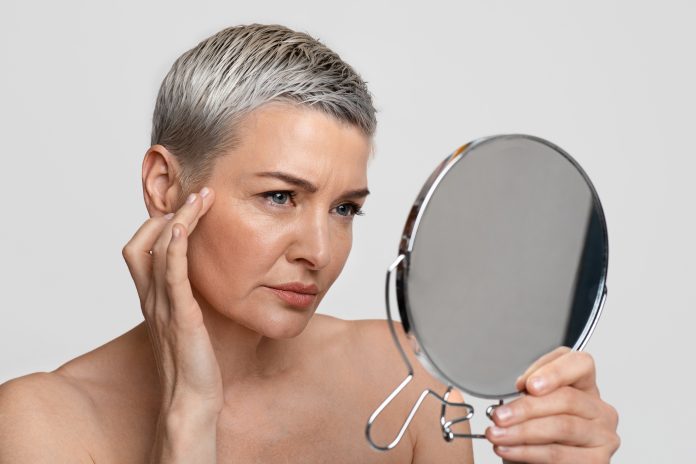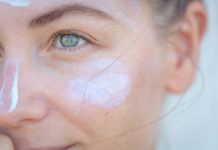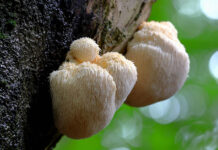
Reported by the US National Institue of Health, rhytides, sagging of skin, and loss of elasticity are all related to changes in the collagen and elastic fibres of the skin, which are themselves impacted by diet. Ingestion of sugar, in particular, can accelerate these signs of ageing, as it promotes cross-linking of collagen fibres.
Cross-linking occurs through a process known as glycation. In this process, a covalent bond is established between the amino acids in the collagen and elastin present in the dermis. These amino acids are linked by glucose and fructose, leading to the production of advanced glycation end products (AGEs). This process is accelerated by hyperglycemia. Research indicates that once established, the body is unable to repair these cross-links. With the accumulation of AGEs, structural changes in the skin can occur, resulting in increased stiffness and reduced elasticity.
Glycation is well underway by early adulthood, with a rate that varies depending on diet. Since it remains impossible to repair cross-links, dietary prevention becomes important. While glucose and fructose in the diet are important contributors, other foods, depending on the method of preparation, may contain preformed AGEs. Once ingested, these can enter the circulation and react with components at the cellular level, causing protein cross-linking. Cooking processes that lead to higher levels of AGEs include grilling, frying, and roasting.
Research has also focused on foods that may be able to inhibit the production of AGEs. These include herbs and spices, such as oregano, cinnamon, cloves, ginger, and garlic, as well as substances found naturally in certain fruits and vegetables, such as lipoic acid.













